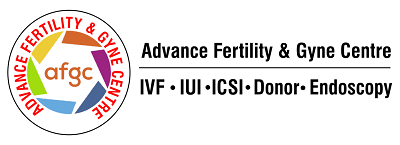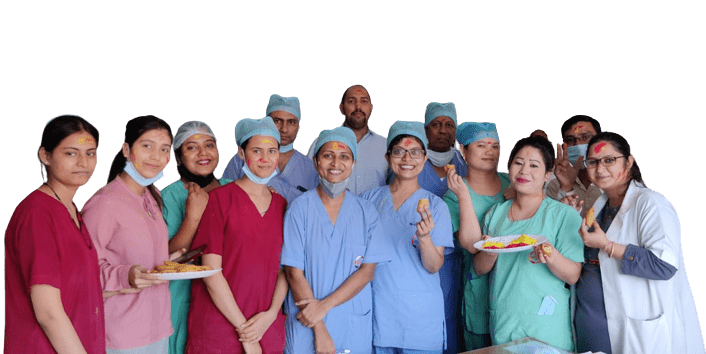IVF, or in vitro fertilisation, is one of the infertility treatments we offer here at Advance Fertility & Gyne Centre. We are proud of our high success rates, thanks to the expertise of our resident infertility specialist, Dr Kaberi Banerjee and our team of seasoned fertility doctors. Additionally, we use only modern and advanced procedures, such as hysteroscopy in IVF, to give you more confidence in our treatments and services.
Hysteroscopy is a day procedure where we apply endoscopy to look into the uterine cavity. In this procedure, we insert a thin lighted probe with a camera into the uterine cavity to identify issues, such as fibroids, polyps, septum, adhesions, and other abnormalities that can impact your chances of becoming pregnant. It’s a comprehensive solution that allows us to treat the problem in one go.
At Advance Fertility & Gyne Centre, our specialists may recommend hysteroscopy in IVF treatment if they suspect uterine adhesions, polyps, fibroids, and other defects. Additionally, we often suggest it if you fail an IVF attempt.
Being new to this procedure might raise questions and concerns, such as its safety and efficacy in improving IVF success rates. In this blog, we will share more information about hysteroscopy and why we make it a part of our IVF procedures to help you understand and make an informed choice to consult us.
How it helps
Here at Advance Fertility, we perform hysteroscopy in IVF for the following reasons:
- Identify the presence of adhesions, fibroids, polyps, or septum
- Clean the uterus with an antibiotic before taking the affected tissue out for infection testing
- Remove the fibroid and polyps, cut adhesions, conduct tubal cannulation, or perform septal resection.
All these can be performed in one procedure, saving you time and effort. This also allows our specialists to address some of the underlying causes of your infertility. The entire process takes 15 to 20 minutes for diagnostic purposes and 30 to 45 minutes for the operative part. Moreover, we closely monitor the entire procedure using the camera attached to our hysteroscope.
The procedure
At Advance Fertility, we perform hysteroscopy in the following steps:
- You will be put under short general anaesthesia.
- The hysteroscope is inserted through your vagina and cervix until it reaches the uterine cavity.
- Normal saline fluid will be infused to expand your uterine cavity and allow us to see better inside.
- We’ll inspect the opening of your fallopian tube in the uterus.
- We’ll check the uterine cavity and endocervical canal.
- If required, the operative procedure will be conducted at the same procedure.
Things to remember before your procedure
While you will be sedated and won’t feel a thing, we recommend the following precautions before hysteroscopy in IVF:
- Complete recommended blood tests. These tests will help us assess your overall health before the procedure.
- Schedule your appointment. The ideal time for a hysteroscopy is typically during the post-menstrual or pre-menstrual phase of your cycle. We can discuss the best timing during your consultation.
- Undergo a pregnancy test (if pre-menstrual). If your appointment falls in the pre-menstrual window, we may recommend a pregnancy test (UPT) beforehand.
- Please refrain from eating or drinking anything (except water) for 6 to 8 hours leading up to your procedure.
Things to do after your hysteroscopy
You don’t need to stay overnight or check into a hospital after a hysteroscopy in IVF. We will discharge you after two to three hours when you wake up from the anaesthesia. However, we recommend eating light food that’s easy to digest after your procedure. You may also experience urinary discomfort, mild bleeding, or mild abdominal bleeding. If these symptoms get worse, don’t hesitate to consult us so we can support you.
Benefits of hysteroscopy
IVF requires careful preparation to increase your success rates. Using hysteroscopy, we meticulously assess your uterine cavity to identify problems that could prevent you from getting pregnant. Then, we can treat them promptly in one sitting. This makes hysteroscopy in IVF essential for enhanced fertility.
Additionally, the procedure allows for faster recovery and doesn’t involve stitches. So you can resume your regular activities the next day.
What to expect
At Advance Fertility, our doctor will carefully brief you about the procedure. Here are the things you can expect during a hysteroscopy:
- You need to empty your bladder
- You need to wear a hospital gown
- An anaesthetic will be provided to keep you relaxed
- Your legs will be secured in stirrups as you lie on the examination table
- Our surgeon will perform a pelvic exam and dilate your cervix to prepare it
- The hysteroscope will be inserted through your vagina and cervix until it reaches the uterus
- We’ll introduce a liquid solution through the hysteroscope to clear any blood or mucus from the uterus
- The surgeon will examine the fallopian tube openings and uterine cavity
- If surgery is needed, the surgeon will insert the surgical instruments through the hysteroscope
The length of time for hysteroscopy in IVF varies, depending on whether it’s for diagnostic, operative, or treatment purposes. For some patients, it can be as quick as 5 minutes. However, it can also go beyond an hour.
Types of hysteroscopy
There are two types:
-
Diagnostic
Hysteroscopy helps our fertility doctors diagnose abnormal bleeding, uterine fibroids or polyps, endometrial cancer, and other relevant issues. We may conduct additional diagnostic tests and an ultrasound to confirm the findings.
-
Operative
Operative hysteroscopy in IVF is a minor surgery for treating underlying issues. Depending on the condition, we can do this with a diagnostic hysteroscopy or use it for polypectomy, endometrial ablation, adhesiolysis, myomectomy, or septoplasty to save time.
Success rates
How effective is hysteroscopy in IVF? The answer depends on many factors. First-time patients typically have high success rates, especially those with suspected or known dysfunctions from previous pregnancies.
Here at Advance Fertility, we have a track record of successfully managing complex cases involving fibroids and polyps. We use hysteroscopy to treat these conditions and significantly improve the likelihood of successful IVF cycles for our patients.
Are you interested in this procedure? Book an appointment today using the online form, or call +91-9871250235.


